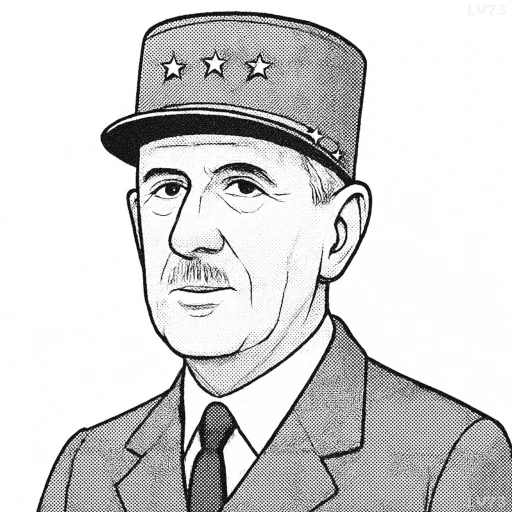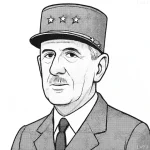“I was France.”

- November 22, 1890 – November 9, 1970
- French
- Military Leader, Statesman, President of France, Founder of the Fifth Republic
table of contents
Quote
“I was France.”
Explanation
This stark and powerful statement by Charles de Gaulle is the ultimate expression of his belief in his own embodiment of the French nation, especially during its darkest and most decisive moments. By declaring “I was France,” he asserts that in times of collapse—particularly during World War II—he alone carried the legitimacy, dignity, and continuity of the French Republic, when others had surrendered or collaborated. It is not merely a personal boast, but a claim to moral and historical representation of the nation itself.
The quote draws directly from de Gaulle’s self-conception as the savior of France’s soul. When the Vichy regime capitulated to Nazi Germany, de Gaulle’s June 18, 1940 appeal from London established him as the sole voice of a free and sovereign France, in exile but unbroken. In his mind, France was not a government or a geographic entity—it was an idea, a history, and a mission that he alone preserved through his leadership and resolve. His claim “I was France” crystallizes this self-appointed yet widely recognized role.
In the modern world, this quote resonates as both a study in political ego and existential leadership. It speaks to the rare moments in history when a single individual becomes synonymous with national identity, not by office or title alone, but by action, sacrifice, and vision. De Gaulle’s words remind us that true leadership can sometimes mean bearing the weight of an entire nation’s hope, memory, and future in one person’s will.
Would you like to share your impressions or related stories about this quote in the comments section?
